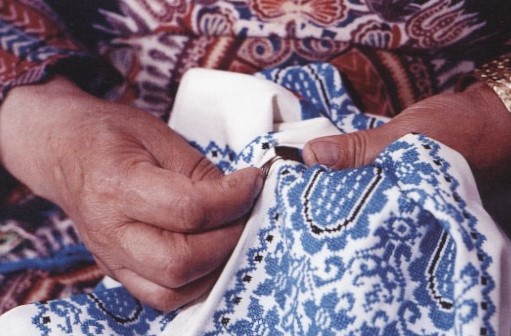Art Form: Palestinian needlework
Location(s): Dearborn (Wayne County)
Amneh Baraka

Amneh Baraka embroidering a dress; photo by Al Kamuda
As a young girl, dressmaker Amneh Baraka (b. 1937) learned to construct and embroider traditional Palestinian garments from the women of her native village of Beit Hanina. After immigrating to the United States, Amneh continued to make intricately embroidered Palestinian dresses in her new home, Dearborn's Southend. Her landlady, Palestinian-born Samiha Abusalah, recalls Amneh, "sitting on her porch embroidering garments" day after day. (1) Having come to the United States at a very young age, Samiha had not learned to make traditional dresses and asked Amneh if she would teach her. Always willing to share her knowledge and skills, Amneh taught Samiha traditional Palestinian embroidery.
In 1980 Amneh's reputation as a skilled embroiderer and dressmaker helped the Southeast Dearborn Community Council obtain a National Endowment for the Arts grant for an exhibition and series of classes on Palestinian and Romanian needlework. Amneh was an integral part of these activities, teaching embroidery techniques to others. In 1987 she participate in the Smithsonian Institution's Festival of American Folklife, representing the cultures and traditions of Michigan, and in the first annual Festival of Michigan Folklife in East Lansing. At both events, she was accompanied by Samiha.
Amneh still lives in Dearborn, a city in which Arabs are the single largest ethnic community. Southeast Michigan is home to one of the most diverse, largest Arabic-speaking population outside the Middle East, with some 250,000 people. Those with Middle Eastern and North African heritage make up more than half the city's population. While more and more women purchase their dresses from Palestinian refugees or have machine-couched dresses made for them, Amneh continues to make dresses and embroider designs that she calls "old fashioned" and "ones my aunt back in Beit Hanina taught me."(2) Women older than 40 still wear these dresses and headdresses adorned with gold coins to weddings, engagement parties, and celebrations of births and graduations. A devout Muslim, Amneh has kept her own traditions and at the same time transcended them to let people outside her community appreciate the artistry of her Palestinian heritage.
(1) Abusalah, Samiha. Personal communication with Yvonne Lockwood. c. 1990.
(2) Baraka, Amneh. Personal communication with John Allan Cicala. 1987 Festival of American Folklife fieldwork notes. 1986.





